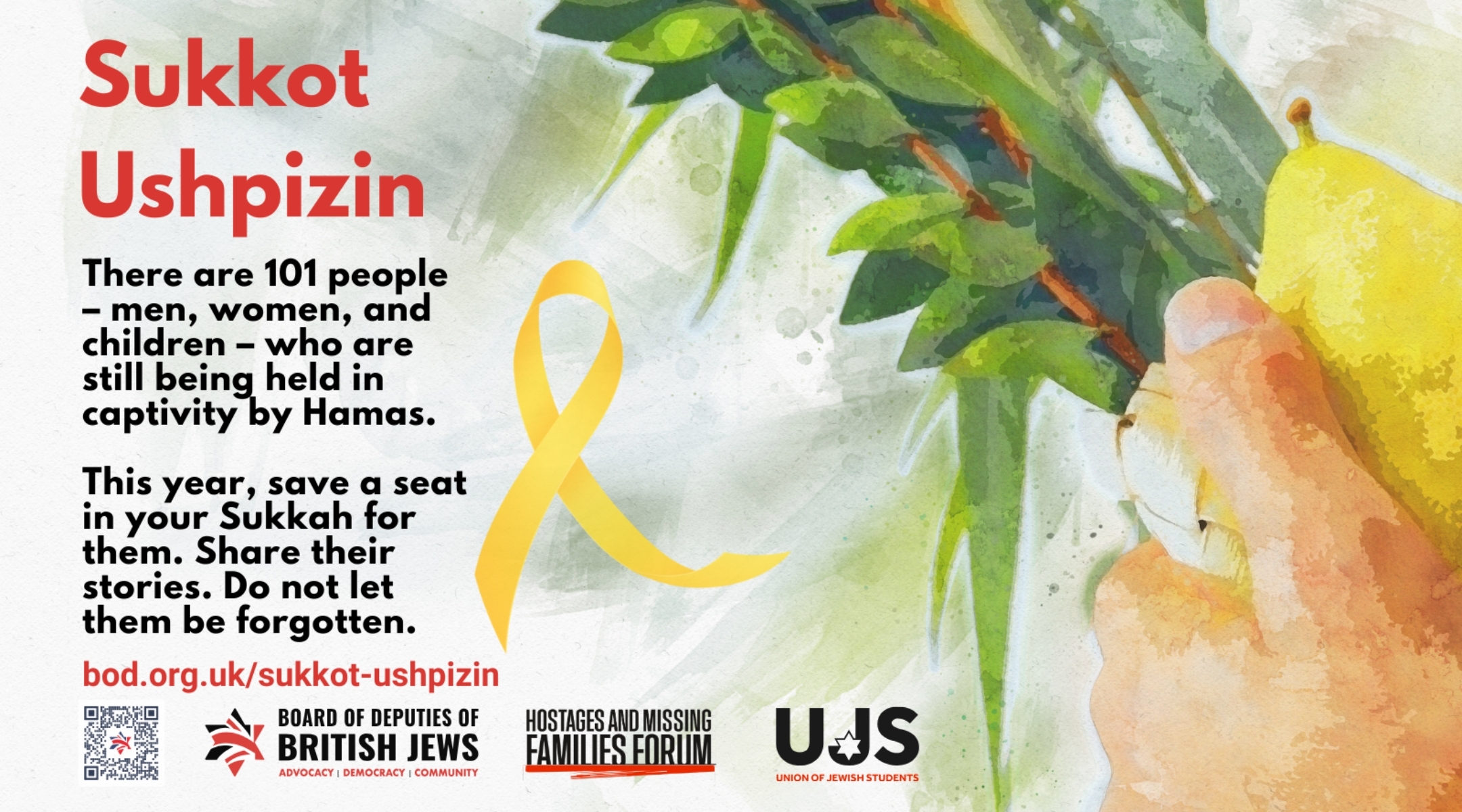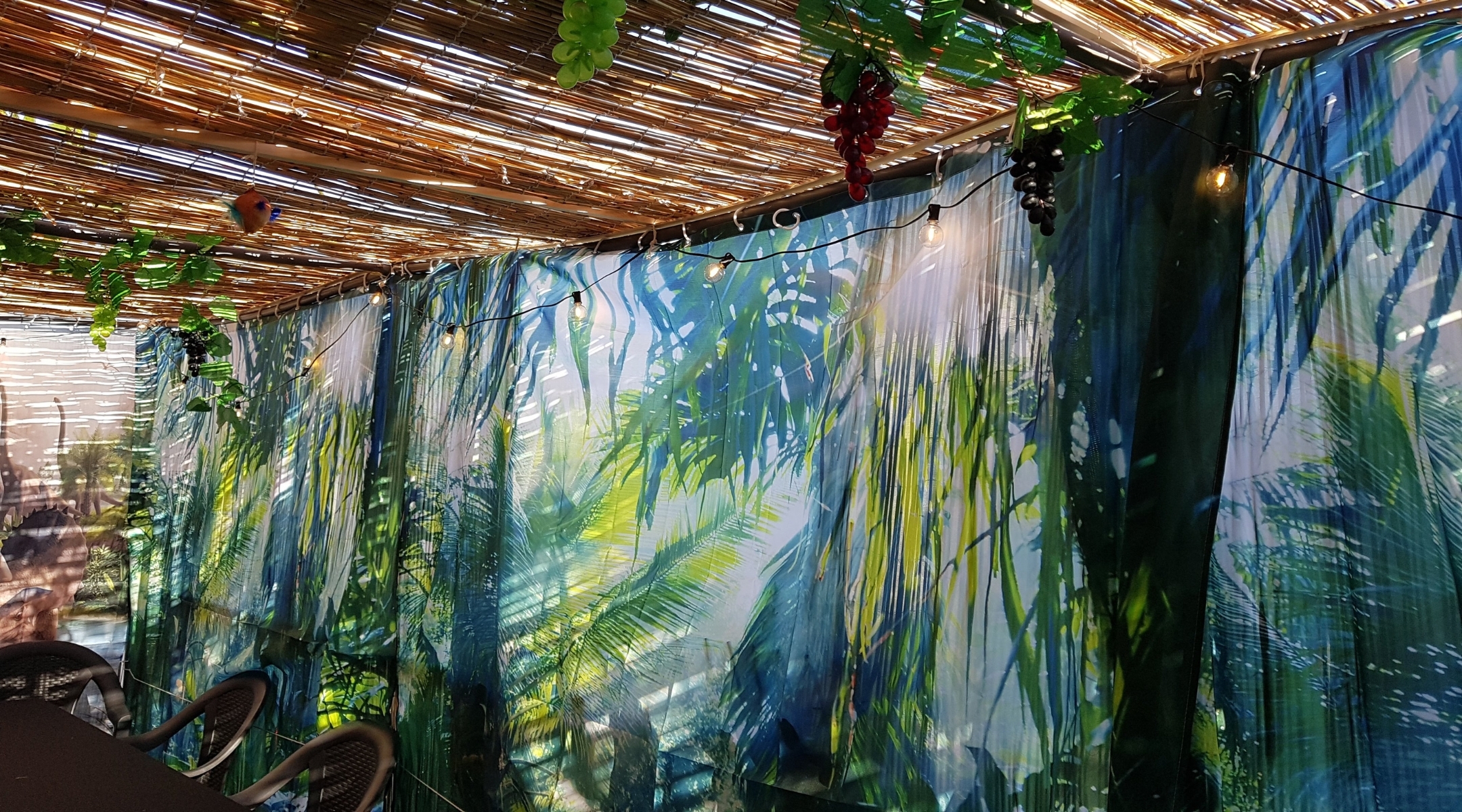For centuries, Jews have symbolically invited the patriarchs Abraham, Isaac and Jacob to their sukkahs.
More recently, many have made a custom of inviting Sarah, Rebecca, Rachel and Leah, too.
This year, some will invite Omer, Matan, Itay and Liri.
As Jews around the world prepare to celebrate the fall festival of Sukkot, the leading British Jewish organization is asking them to remember the hostages held by Hamas in Gaza by setting a seat for them in the sukkah. The initiative hearkens back to an age-old Jewish tradition called “ushpizin,” the practice of inviting symbolic guests to the temporary huts built for and eaten in during the holiday.
“At Sukkot, we traditionally welcome the Ushpizin — holy visitors — at our festive meals,” Phil Rosenberg, president of the Board of Deputies of British Jews, an umbrella group, said in a statement. “This year, we are missing and remembering crucial guests, the hostages who are not free to celebrate with their loved ones.”
He added, “They are 101 men, women and children who are being cruelly held by Hamas in Gaza. We pray for their immediate return, and we encourage everyone to join in the ‘Save a Seat at the Sukkah’ campaign. Let’s all do everything we can to bring them home now!”

Digital poster for a Sukkot campaign commemorating hostages held in Gaza, organized by the Board of Deputies of British Jews. (Board of Deputies of British Jews)
In the ritual of ushpizin, Aramaic for “guests,” Jews have historically “invited” the three Jewish forefathers, plus four other men of the Bible, to dine with them — dedicating each of the holiday’s seven nights to one of the figures. In recent decades, many Jews have paired each Biblical man with a corresponding woman of the book — Sarah with Abraham, Rebecca with Isaac, and so on. Newer interpretations include other important people or contemporary Jewish figures, and in some traditions, a seat is left open for the “guest.”
As part of the campaign, the Board of Deputies has shared both digital and printable posters of all 101 hostages held in Gaza, a social media kit, and new hashtags to spread word of the endeavor, such as #SukkotUshpizin and #SaveASeatInTheSukkah. The group, which collaborated on the initiative with the British Union of Jewish Students and the Hostages and Missing Families Forum, is urging Jews to place a hostage poster on an empty seat at the table.
“There are 101 people — men, women, and children who are still being held in captivity by Hamas,” the printable poster says. “This year, save a seat in your Sukkah for them. Share their stories. Do not let them be forgotten.”
The initiative is one of many ways people are employing the sukkah to draw attention to the plight of the hostages taken more than a year ago, during Hamas’ Oct. 7, 2023, invasion of Israel. Other tributes include decorating the sukkah with yellow ribbons or symbols of the ravaged border communities.
“We are celebrating the holiday, but our hearts are still captive in Gaza,” said Orit Kehaty, who runs a kindergarten in Tel Aviv whose sukkah will bear the message, “We are awaiting the return of the hostages,” as well as a yellow ribbon.
In April, like other Jewish groups, the Board of Deputies organized a similar campaign to save a seat for the hostages at the Passover seder table — a call that many Jewish families worldwide took on independently, in an echo of a 20th-century campaign for Soviet Jewry. The same concept was at the heart of a Shabbat table public art display placed in Tel Aviv’s Hostage Square, which was replicated in public spaces around the world.
“We urge you to share their light and share their stories,” the Board of Deputies said in a description of the campaign on its website. “These are not just posters; they are whole worlds, testimony to those cruelly taken from their families in the most brutal way. We encourage you to share pictures of that seat with a hostage poster on social media, sharing the story of that hostage and amplifying their plight.”
JTA has documented Jewish history in real-time for over a century. Keep our journalism strong by joining us in supporting independent, award-winning reporting.






